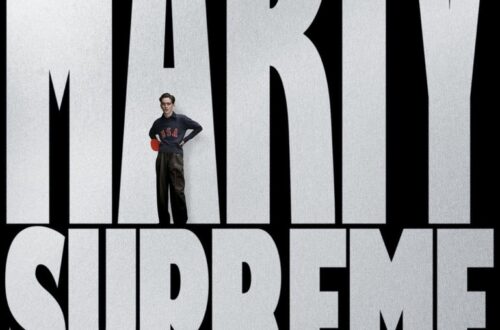In Swiped, Lily James sheds her period-drama image to play Whitney Wolfe Herd, the woman who helped create Tinder and then went on to found Bumble, changing the landscape of modern dating. The biopic traces a decade of disruption, ambition, and reinvention, pulling back the curtain on the competitive, male-dominated tech world that turned swiping into a cultural phenomenon.
The film opens with Wolfe Herd as a young entrepreneur, arriving in Los Angeles with an idea and the drive to make it happen. Her early days at a fledgling dating startup are depicted with the energy of a Silicon Beach gold rush—whiteboards crammed with ideas, caffeine-fueled brainstorming sessions, and the thrill of launching an app designed to make meeting people faster and easier. That app would become Tinder, a name and interface that would soon be recognized worldwide.
James plays these early scenes with a magnetic mix of curiosity and calculated ambition. Her Wolfe Herd is quick to spot the social trends others overlook, pushing for features that make the app feel intuitive and addictive. In the boardroom, she’s strategic and persuasive, building a brand that becomes a staple of modern dating culture. But as the app explodes in popularity, the honeymoon phase ends.
The second act shifts into a more tense and personal story. Workplace tensions, creative disagreements, and a culture that often sidelines women begin to take a toll. Wolfe Herd’s departure from Tinder is portrayed as both a rupture and a turning point, handled in the film without melodrama but with emotional weight. James captures the quiet defiance of someone deciding to walk away from a wildly successful venture to build something new on her own terms.
That something new is Bumble—an app that flips the dating script by giving women the power to make the first move. The film treats the idea as both radical and elegantly simple, born out of Wolfe Herd’s desire to create a safer, more empowering experience in online dating. We see her working out of temporary offices, recruiting a team that believes in the mission, and hustling to get the app noticed in a crowded marketplace. The energy is different here—less manic start-up chaos, more focused purpose.
James delivers some of her strongest moments in scenes where Wolfe Herd pitches the concept to skeptical investors or explains it to college students during early campus launches. She radiates conviction, blending idealism with the hard-nosed realism of someone who knows how brutal the tech industry can be.
The film doesn’t shy away from the challenges that followed. Competition from bigger players, technical setbacks, and the balancing act of scaling a company while staying true to its mission are all explored. But Swiped finds its heartbeat in the smaller moments—conversations with mentors, quiet doubts in hotel rooms between pitch meetings, and the satisfaction of seeing women take control of their dating experiences.
The climax builds to Bumble’s public offering, portrayed as both a personal victory and a symbolic one. The image of Wolfe Herd, now a mother, holding her child while ringing the opening bell, lands as the emotional payoff for a story about resilience and reinvention. James plays it not as a triumphant final act, but as another step forward—a continuation of the same restless energy that powered her character from the beginning.
Director Rachel Lee Goldenberg gives the film a sharp, modern aesthetic, moving effortlessly between the frenetic startup spaces of Tinder’s early days and the confident polish of Bumble’s global headquarters. The script keeps the focus on Wolfe Herd’s journey without veering into hagiography, showing both the personal costs and rewards of building something that lasts.
In Swiped, Lily James delivers a performance that captures the intelligence, ambition, and emotional complexity of a woman who not only transformed how people meet, but also how women can lead in an industry where they are too often told to step aside. It’s a film about innovation, empowerment, and the courage to start over—swiping left on the status quo and right on your own vision.




